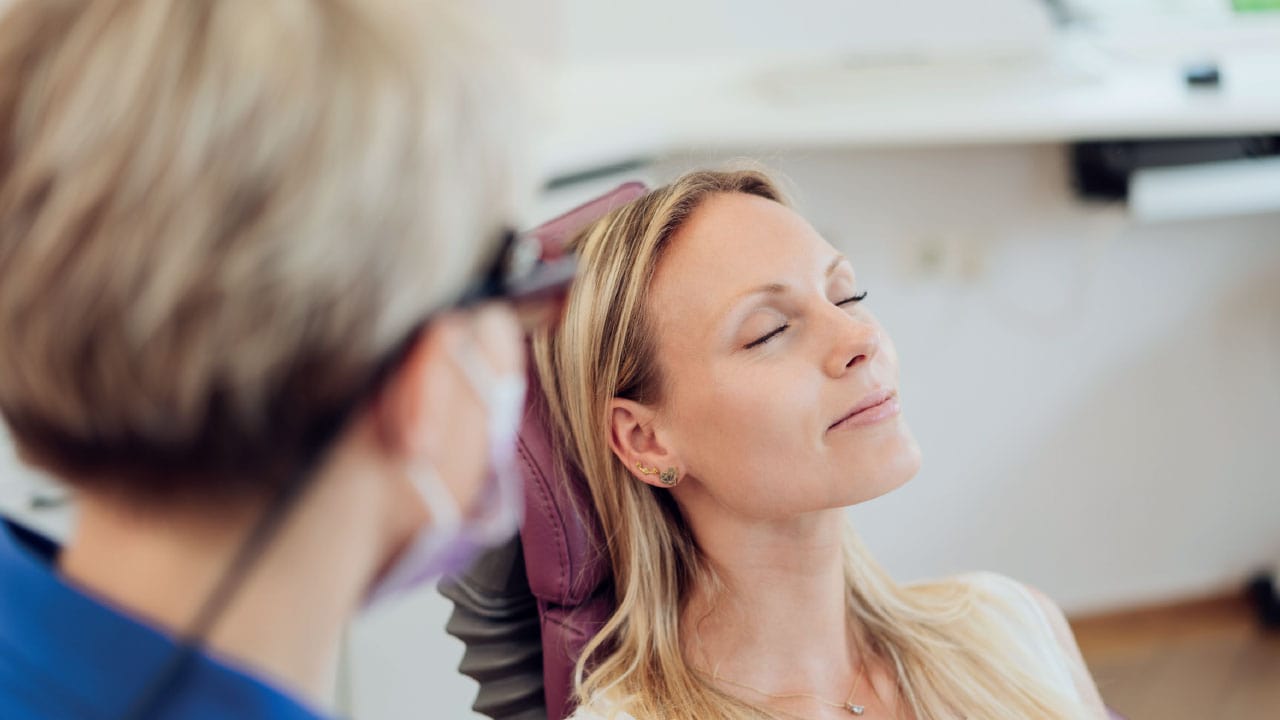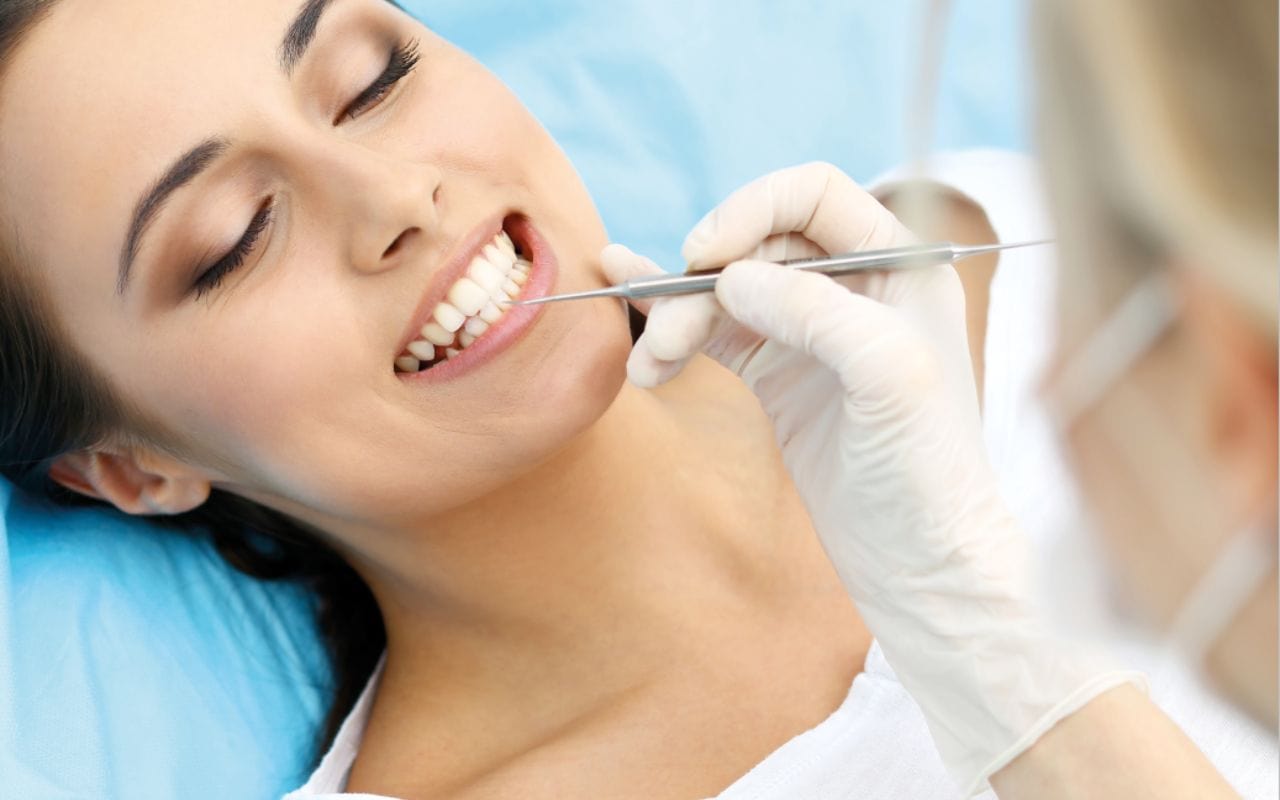
Yoga at the dentist
Soothing yoga and meditation techniques when you're sitting in the dentist's chair. By Maria Oliver
When we talk about 'yoga off the mat', it normally refers to Karma Yoga or doing good deeds out in the world. But is it possible, and actually helpful, to practice yoga at the dentist?
Let me be clear about my expertise here. I'm not a qualified therapist or counsellor, I'm a yoga teacher. I don't have experience of having a phobia or anxiety about going to the dentist. Neither do I have any knowledge of dentistry – hence my blissful ignorance about dentists' tools, as you will see.
I'm suggesting how some of the practices you learn in a yoga class might help you to manage to an everyday level of worry and/or discomfort when visiting the dentist (which can, of course, equally be applied to any other seemingly stressful or uncomfortable situation).
Visiting the dentist is now always an enjoyable experience as an adult. The inspiration for this article came following a 30-minute session with a hygienist prodding my tender gums with a metal, electrical implement and hoovering/spraying my mouth while I lay horizontally and tried not to choke or dribble.
Not only can yoga help you to feel better during your dental appointment, but if you stay calm and relaxed then it makes it easier for your dentist to get on with their job. Your appointment is over sooner and everyone is happy!
So here's how I got through my recent appointment.
First, by using a Drishti point. This is an external point of focus, so that your mind concentrates on one thing, rather than jumping around from thought to thought or from one worry to another. In a dentist's chair, the lamp is shining straight down at you and is an excellent Drishtin point. Obviously it shouldn't be used if the light is painful to your eyes, but dentists often give you protective eyewear – if it's tinted then you can safely gaze at the lamp. If not the lamp, maybe there's something else – one of my dentists had a children's poster on the ceiling.
Secondly, by carrying out a body scan. Where are you feeling tension? The most common areas are your jaw (no surprise if you're having to lie back with your mouth unnaturally open), your forehead, your shoulders, and your belly. Can you allow yourself to feel soft and heavy, and let yourself give in to the support of the dentist's chair?

Thirdly, by focusing on your breath. It isn't easy to breathe with someone poking around in your mouth, including a thing that sucks out or blows water or whatever it does (I could research the purpose of this tool, but I don't think I want to know). If your nose is clear, then it's obviously better to breathe through it so that you can maintain a slow, steady, effortless breath. Breathing through your mouth will huff up the dentist's mirror so they can't get on with their job, and trying to hold your breath and breathe through your mouth when you get the opportunity is not at all relaxing! Keeping a calm, steady breath and breathing into your belly helps to activate your parasympathetic nervous system. It persuades your brain that you are in a safe place and everything is fine. With every out-breath, allow yourself to feel heavier. If possible, allow your out-breath to lengthen so that it's longer than your in-breath. If your breathing is slow and relaxed, then your body and mind will relax, too.
Finally, practice being non-grasping: the Yama of Aparigraha. You can let go of the idea of having to be in control. Your dentist is a skilled, qualified practitioner who knows what they're doing. Years ago, I undertook a management qualification and one of the lessons has always remained with me: a definition of trust. You can only trust someone if you believe two things about them: that they have expertise, and that they care about you. An expert who doesn't care is not trustworthy, and a caring person with no expertise isn't either. If you feel as if you can trust your dentist, you can tell yourself that they know what they're doing and want to help you. Let go of the need for self-preservation. If you don't feel like you need to protect yourself, you'll feel more relaxed.
So, next time you visit the dentist for a routine procedure, maybe you can turn your appointment into a meditation, and come out feeling refreshed mentally... and mentally!
Maria Oliver teaches yoga in Hertfordshire for children, adults, pregnant women and new mums and is the author of several yoga books for children. Visit: boxmooryoga.co.uk




